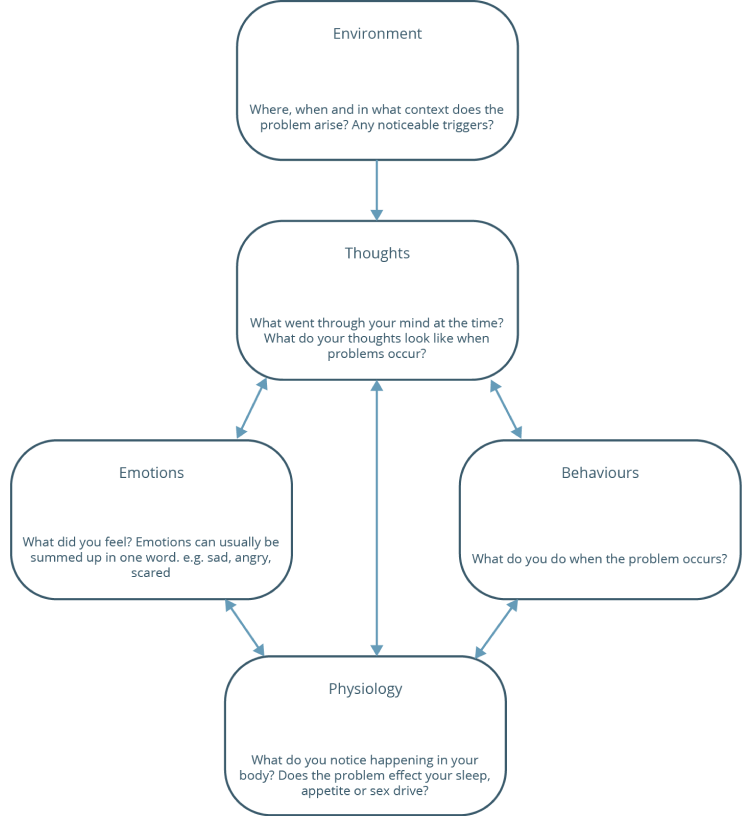How Does CBT Work?
Cognitive Behavioural Therapy works by teaching you techniques and skills to challenge unhelpful thinking patterns and problem behaviours.
The “C” in CBT, the “Cognitive” bit, refers to anything that happens in our minds. This includes things like specific thoughts and memories and also processes like worry, rumination and attention. The “B”, Behavioural, bit relates to anything which we do in response to, or within the context of, an event which leads to a specific outcome. We are also interested in the emotions that occur in the problem, the changes that occur in our body and the situations which may trigger the problem.
Once we have broken down a problem into thoughts, emotions, behaviours and physical changes, then we are able to tailor specific techniques (sometimes also called interventions) to fix each part of the problem. The idea being that, by fixing one area, this will have a positive impact upon the other areas of the problem.
This diagram shows us just one of the ways that CBT breaks down a problem into parts and how they are linked together. This is called a 5 areas formulation, sometimes also called a descriptive formulation.


